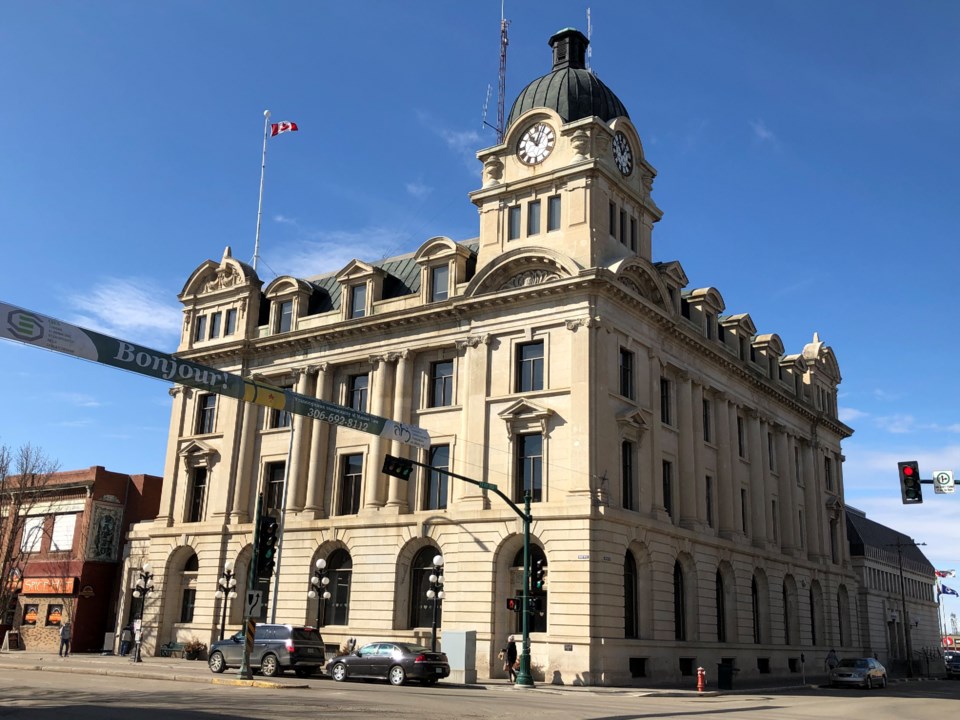MOOSE JAW — Once the new stormwater utility launches on July 1, it will generate almost $1.6 million annually for capital infrastructure rehabilitation and operational maintenance while reducing the mill rate by almost one per cent.
To generate those dollars, the utility will charge all properties a uniform rate of $9.80 per month regardless of lot size. City hall expects to collect $800,000 this year, while it expects to acquire the $1.6 million starting in 2026.
Also, the full funding will reduce general operating budget expenses by $326,000, which will cut 0.75 per cent from the municipal tax hike.
City administration presented an overview of the proposed stormwater utility bylaw during city council’s June 9 executive committee meeting. Council then approved a recommendation to submit the proposed bylaw to the June 23 meeting, where members will consider adopting it.
Explanations
Brian Acker, director of finance, said the city will add this new utility charge to the existing 11,000 bills, while it will create accounts for properties that lack ones for water or wastewater.
Furthermore, the city will charge these fees quarterly, but can’t do so annually with the current system, he continued. People who can’t be bothered to do anything should consider joining the Water Instalment Payment Plan (WIPP) so the city can automatically withdraw that money.
Asked about exemptions to the mandatory connection order to the stormwater system, Acker said all exemption requests have always gone through the city manager and will continue to do so. Meanwhile, all properties directly or indirectly benefit from the system, so the fee is “minor.”
For example, he pointed out that in-city agriculture properties use ditches, creeks or culverts, which can be part of the stormwater system. So, the municipality believes they should pay as well, although they could apply for exemptions.
Meanwhile, since the city manager or designate will adjudicate requests, city hall will have operational guidelines to direct the process, Acker added.
Bylaw details
The purpose of the stormwater utility bylaw is to regulate stormwater collection, treatment and disposal, prevent misuse and damage to the system, protect public health, safety and the environment, and establish service charges for properties that benefit from the system, the bylaw says.
Furthermore, The Cities Act deems the stormwater system a public utility, while the city manager or a designate has the power to administer and enforce bylaw provisions.
Meanwhile, the bylaw prohibits homes and businesses from making unauthorized discharges, with some prohibited substances including wastewater, stratified water, liquids hotter than 65 Celsius, pesticides, solids greater than 12.5 millimetres, toxic or noxious substances, petroleum and chlorinated pool water, the bylaw says.
However, only the city is allowed to make discharges into the system during emergencies.
The bylaw says properties are mandated to connect to the stormwater system, especially buildings with a roof area that is equal to or larger than 300 square metres or covers over 75 per cent of the site and parking lots that are over 1,200 square metres in size.
Property owners must connect within 60 days of receiving a notice or the municipality may connect the property at the owner’s expense, the document says.
However, connection exemptions include one- or two-unit dwellings and properties without adjacent stormwater mains. Also, future developments must submit drainage plans and install future-ready piping if no adjacent main exists.
While all properties must pay the monthly fee, exemptions include city-owned roads and streets and other properties — such as cemeteries, agricultural lots and community gardens — at the city manager’s discretion. Anyone who wants an exemption must submit a request in writing, while the city manager’s decision is final.
With penalties, fines for breaching the bylaw range from $500 to $10,000, with the bylaw enforcement officers issuing violation notices either personally or by registered mail. If people fail to pay, the city will issue a violation ticket, and a summons ticket may require a court appearance.
Also, the city may disconnect services for unpaid charges or bylaw violations with notice, while the city manager may enforce the collection of unpaid accounts, the bylaw says.
The next executive committee meeting is Monday, June 23.




